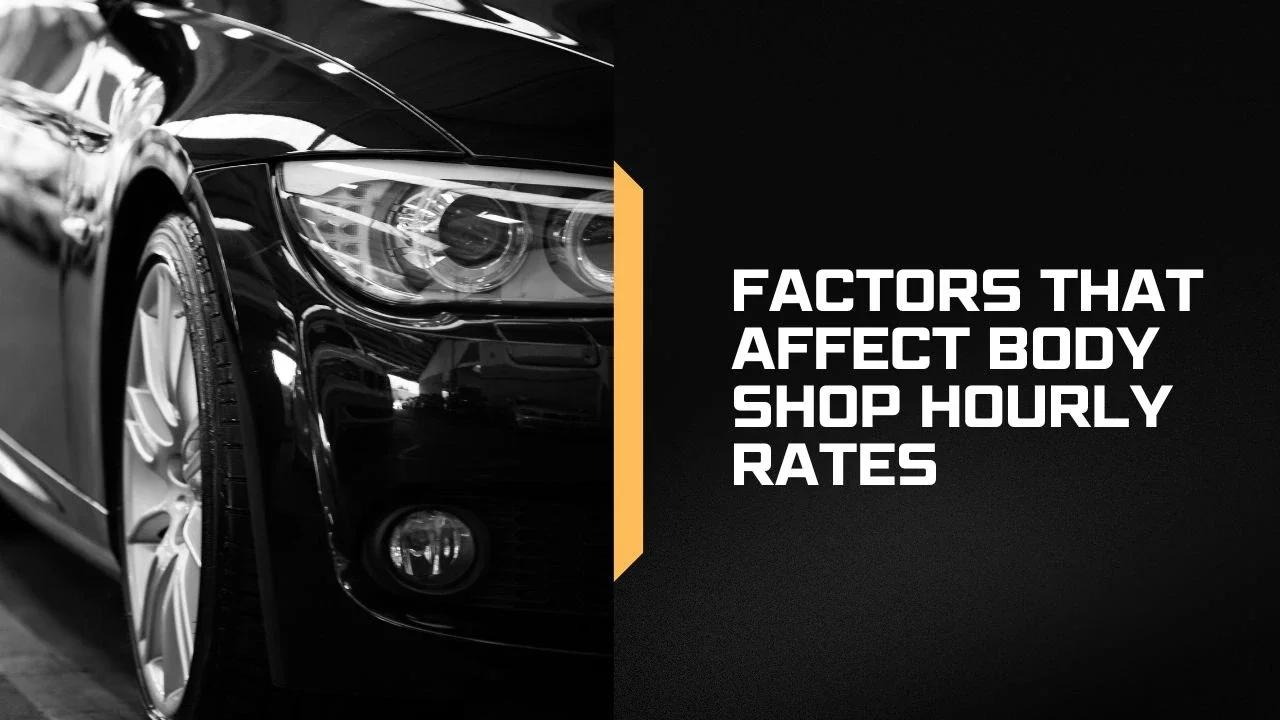How Much Do Body Shops Charge Per Hour?
If you’ve ever needed auto body repairs, one of the first questions you might ask is, how much do body shops charge per hour? Knowing the typical labor rates can help you budget effectively, avoid overpaying, and get the quality repairs your vehicle deserves. In the U.S., body shop labor rates typically range from $50 to $120 per hour, but in cities like Chicago, the cost tends to be higher, usually between $95 and $150 per hour depending on the shop and the type of work.
In this guide, we’ll explore how much body work costs per hour, factors influencing these rates, and tips to save on your next repair.
Understanding Auto Body Shop Labor Rates
Auto body shop labor rates are charges for the technician’s time spent repairing the vehicle’s exterior, not including parts or materials. These auto body repair costs tend to be higher than mechanical labor because bodywork requires:
Precise craftsmanship
Paint matching and blending
Specialised equipment like frame-straightening tools and paint booths
In places like Chicago, advanced repairs such as structural frame straightening or premium paint jobs can cost between $140 and $150 per hour due to skilled labor and high demand.
Average Body Shop Labor Rates: Chicago vs. U.S.
| Service Type | Avg. Repair Time (Hours) | Avg. Hourly Rate (U.S.) | Avg. Hourly Rate (Chicago) | Estimated Labor Cost (U.S.) | Estimated Labor Cost (Chicago) |
|---|---|---|---|---|---|
| Small Dent Repair | 1 – 1.5 | $90 | $110 | $90 – $135 | $110 – $165 |
| Bumper Repair or Replacement | 2 – 3 | $95 | $125 | $190 – $285 | $250 – $375 |
| Full Repaint (per panel) | 3 – 4 | $100 | $140 | $300 – $400 | $420 – $560 |
| Collision Frame Straightening | 4 – 6 | $105 | $145 | $420 – $630 | $580 – $870 |
💡 Tip: Ask if your body shop charges by flat-rate hours (set time per repair) or actual hours worked. Flat rates can sometimes save money if repairs finish faster.
Factors That Affect Body Shop Hourly Rates
Several key factors influence how much body shops charge per hour:
Shop reputation: Certified and highly rated shops (ASE, I-CAR) often have higher rates.
Location: Urban centers like Chicago typically have higher rates than rural areas.
Demand: Winter months and accident spikes increase labor costs.
Technician skill: Experienced techs command higher wages, raising rates.
Repair complexity: More severe or specialized repairs take longer and cost more
How to Estimate Your Repair Labor Costs?
The total auto body repair labor rates you pay depend on the body shop's charges per hour and the estimated time needed. Essentially, the body shop labor price is calculated by multiplying the shop's hourly rate by the number of hours required for the repair. Some shops may offer flat-rate pricing, while others charge based on actual hours worked.
Before starting repairs, ask:
Is labor billed hourly or flat-rate?
What is the estimated number of labor hours for my repair?
Can you provide a detailed estimate separating labor and parts?
Tips to Save on Body Shop Labor Costs
Get quotes from at least three reputable shops.
Request detailed estimates that separate labor and parts costs.
Choose certified body shops (ASE or I-CAR certified) for quality and fair pricing.
Schedule repairs during off-peak seasons to avoid price surges.
Conclusion
So, how much do body shops charge per hour? It varies by location, service type, and shop reputation. While the average U.S. rate ranges between $50 and $120 per hour, Chicago drivers typically pay $95 to $150 per hour for quality service.
Understanding these rates and asking the right questions helps ensure you receive fair pricing without compromising quality on your next repair.
FAQs
Q1: Why are mechanic labor rates and auto body labor rates different?
Ans: Body work requires specialized tools, materials, and skills, making it more expensive than general mechanical repairs.
Q2: Do labor rates include parts?
Ans: No, parts and materials are charged separately from labor.
Q3: Are labor rates negotiable at Chicago body shops?
Ans: Typically, reputable shops have fixed rates, so negotiation is rare.
Q4: What’s the difference between flat-rate and hourly labor pricing?
Ans: Flat-rate pricing charges set hours based on repair type; hourly pricing charges actual time spent.
Q5: Can I use a mechanic instead of a body shop?
Ans: Only for mechanical repairs. Cosmetic or collision repairs require a body shop.
